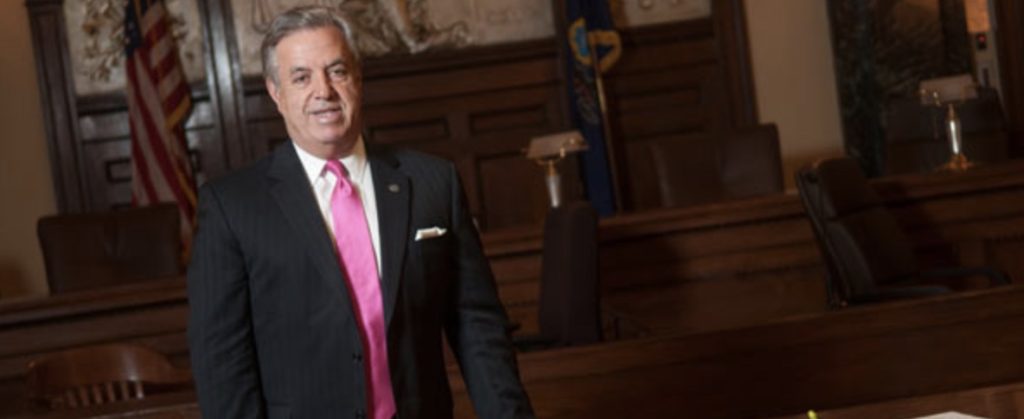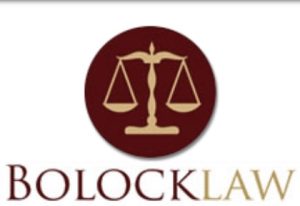Treatment Court

Attorney Frank Bolock is one of only a handful of Treatment Court Attorneys in Pennsylvania. Bolock has parlayed his legal knowledge, skills and experience as a criminal defense attorney concentrating on DUI and drug crime defense with his knowledge and expertise in the field of alcoholism and drug addiction to uniquely position him to be of maximum assistance to certain of his clients charged with crimes where alcohol, drug or mental illness exists as a causative factor. Attorney Bolock through his particular skillset has been able to assist certain clients avoid almost certain incarceration and the negative effects of permanent criminal records by positioning their cases for admission into Treatment Court programs.
Treatment Courts sometimes referred to as Drug Court, DUI Court, Problem Solving or Specialty Courts are an innovative and aggressive approach to the overwhelming impact on society caused by crimes driven by drug addiction, alcoholism and mental illness.
Treatment Courts offer certain defendants mainly non-violent offenders with drug, alcohol or mental health diagnosis the opportunity to avoid incarceration and the negative effects of a permanent criminal record conditioned upon the particular defendants willingness to address his underlying drug addiction, alcoholism or mental illness through a structured program supervised by the judicial system.
Attorney Frank Bolock has been a staunch advocate for the implementation of Treatment Courts in Pennsylvania for over 20 years.
Bolock is extremely pleased and proud to point to the Treatment Court in the Lackawanna County Court of Common Pleas which under the direction of Lackawanna County judges Michael Barrasse, Vito Geroulo and Trish Corbett has developed into a model Treatment Court not just for Pennsylvania but for Treatment Courts across the nation.
Bolock credits the Treatment Court movement and indeed the “recovery defense” as a strategy which not only affects positive changes in the lives of defendant and allows them the opportunity to avoid incarceration and the negative effects of a permanent criminal record but both protocols can actually “save lives” of an individual defendant and without question improve the lives of family members of the alcoholic and addicted defendant.
An experienced and knowledgeable Treatment Court attorney such as Attorney Frank J. Bolock, Jr. can help defendants seek admission into Treatment Court and can assist with the management of the defendant’s progress through the Treatment Court process. Attorney Bolock as a consequence of his unique knowledge and experience as a Treatment Court attorney is able to assist clients with making application and having favorable determinations as to eligibility for Treatment Court disposition. Additionally Attorney Bolock is able to provide advice and counsel to a defendant proceeding through the Treatment Court to assist the defendant with the management of his or her Treatment Court objectives and to hopefully see the defendant through to the goal of completion of a Treatment Court program which ultimately results in sentence reduction, avoidance of incarceration and the elimination or expungement of a criminal record. Attorney Bolock has handled hundreds of Treatment Court cases throughout northeastern Pennsylvania and has worked closely with various Treatment Court teams, the staff at various Treatment Courts and the supervising judges in various Treatment Courts. In addition to Bolock’s role as a Treatment Court attorney providing counsel to private clients charged with crimes he has served as special advocate to the Treatment Court in Lackawanna County and has been able to assist the Lackawanna County Court with the policy implementation, the expansion of the Treatment Courts and the coordination of resources for the benefit of the clients participating in the Treatment Court system. Attorney Frank Bolock is a member of the National Association of Drug Court Professionals and has served for the past seven years as the Chairman of the Board of Directors of the Treatment Court Advocacy Center of Lackawanna County (TCAC). The Treatment Court Advocacy Center Lackawanna County is a 501(c)(3), non-profit corporation whose mission is to assist individual defendants proceeding through the various Treatment Courts of Lackawanna County in their journey from an addictive lifestyle to a sober life. TCAC provides financial support through the Lackawanna County Treatment Court team to individual clients to assist them with transportation, medical and dental care, housing assistance, job training, and other basic necessaries of life to assist them in their transitory journey to a sober and clean life.
In Lackawanna County there exists several multi-disciplinary Treatment Courts utilized in an effort to combat substance abuse, alcoholism and individuals suffering from mental illness which existed as a causative factor in the commission of crime. Presently Lackawanna County has adults and juvenile Treatment Courts, DUI Court, Family Treatment Court, Mental Health Court, Veteran’s Court, Intercept II, State Intermediate and Restrictive Intermediate Punishment Court and Re Entry Court.
The existence and the operation of Treatment Courts vary from county jurisdiction to jurisdiction throughout Pennsylvania, however the good news is that for most of the counties surrounding Lackawanna namely Luzerne, Wyoming, Wayne, Susquehanna, Monroe and Pike, each county is developing a Treatment Court modeled to some extent on the court in Lackawanna County. Attorney Bolock has been able apply his unique experience to assist defendants in these other counties in successfully navigating the Treatment Court process.
Eligibility for admission into a Treatment Court and indeed the requirements of each Treatment Court varies from jurisdiction to jurisdiction. Consequently, retaining an experienced Treatment Court attorney such as Attorney Frank J. Bolock, Jr. is critical to a defendant’s admission and ultimate success through a Treatment Court.
Most Treatment Courts have a program that extends anywhere from 12 months to 18 months and consists of various phases of treatment. Individual defendants participating in the Treatment Court are provided with intensive treatment and other services in order to deal with their alcoholism, drug addiction or mental health issues. The individual Treatment Court defendant is held accountable by the Treatment Court Judge for meeting their obligations to the Court, society, themselves and their families. Treatment Court participants are regularly and randomly tested for drug and alcohol use and are required to appear frequently before the judge and the treatment team so that Court can consistently, and constantly review the defendant’s progress through Treatment Court. The defendant who successfully completes the various phases of treatment is rewarded through avoiding incarceration, achieving a sentence reduction and most often an expungement of their criminal record. However those defendants that do not comply with the strict regulations and guidelines of the Treatment Court are sanctioned if they do not live up to their obligations. Published researched on the effects of Treatment Court has led to the conclusion that Treatment Courts work and they work better than jail or prison. Treatment Courts work better than probation and treatment alone and treatment courts reduce drug use and crime and are the most cost-effective way of addressing the societal problems associated with combating crime. A proven scientific fact has established that nationwide 75 percent of Treatment Court graduates remain arrest free at least two years after completing their Treatment Court program though unfortunately, while Treatment Courts are a proven success they are a relatively new entity and at the present time Treatment Courts only serve a fraction of the estimated 1.2 million drug-addicted people currently involved in the justice system. Fortunately, the Treatment Court movement is gaining momentum as a result of the successes that have been documented.
Attorney Frank Bolock has been a staunch advocate for the implementation of Treatment Courts in Pennsylvania Courts for over 20 years. Bolock, a former assistant district attorney for Lackawanna County heading up several county-wide drug task forces and amassing a successful record for prosecuting drug cases became convinced decades ago that “war on drugs” was a monumental failure on all fronts. The “war on drugs” which commenced in the 1970s and continued through the 1980s clearly has failed to stem the drug epidemic and associated societal ills impacting society in the United States. The “war on drugs” has been essentially a lose/lose proposition for defendants, taxpayers and society in general. The winners in the “war on drugs” appear to be the prison industrial complex, certain aspects of law enforcement and unfortunately drug cartels and drug traffickers. The “lock ’em up” strategy adopted as part of the “war on drugs” has resulted in a critical situation in Pennsylvania and the prison system throughout the United States. Indeed, the United States has the highest incarceration rate in the world with 2.2 million individuals behind bars and more than half of individuals incarcerated at the Federal level are serving time for drug charges. The cost associated with the incarceration and overcrowding of prisons is astounding with states of paying upwards of $44 billion in prison expenses and increase of 127 percent over the course of the past ten years. During the same ten-year period the states’ expenditures for higher learning rose only 21 percent. Despite the huge expenditure of money, the “war on drugs” and the “lock ’em up” strategy continues to wreak havoc in society. The ridiculous cost associated with the levels of incarceration, the recidivism rate and the continuing epidemic of drug and alcohol abuse in the United States has led to the popular sentiment of 67 percent of the population believing that the government should offer treatment for offenders versus incarceration. Research conducted by the PEW Center for Research has concluded that drug treatment programs for offenders can result in taxpayer savings of nearly $7 billion. Further research specific to treatment programs has demonstrated that taxpayers saved between $3,000.00 and $13,000.00 per client participating in the Treatment Court programs versus incarceration. While the financial benefit to taxpayers is positive, Bolock chooses to point to the success of his individual clients who have succeeded in changing their lives through the Treatment Court protocol. In fact their, in many instances, saved lives represents a benefit that is immeasurable in terms of dollars and cents.
The Treatment Court movement is on the rise throughout the state courts in the counties of northeastern Pennsylvania and the movement towards treatment versus incarceration is even starting to catch on in the Federal courts. This represents good news for society, taxpayers and individual defendants.
The criteria for admission into Treatment Court programs and the regulation for accomplishing goals and objectives through the Treatment Court is an evolving process and relying on the unique skills of an experience Treatment Court lawyer such as Attorney Frank J. Bolock, Jr. will enhance a defendant’s opportunity for success.
If you or a family member is arrested for a crime that might qualify for disposition through Treatment Court call, text or utilize the Bolock Law online contact form to arrange a consultation with Attorney Frank J. Bolock, Jr.
